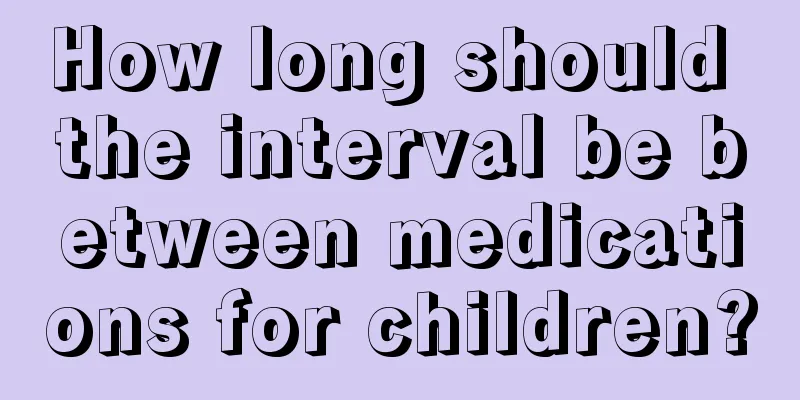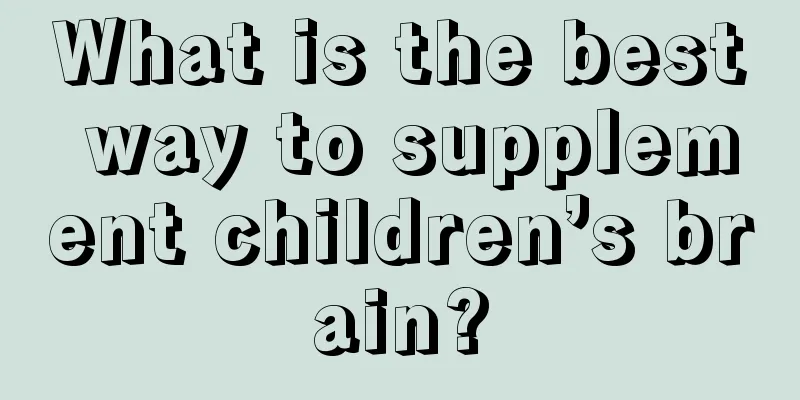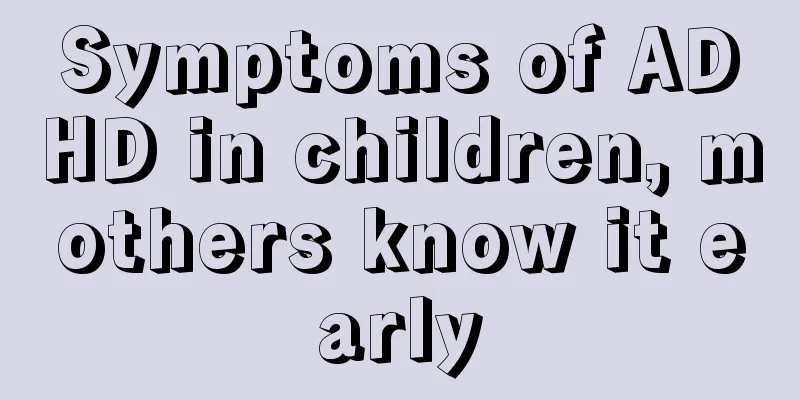How long should the interval be between medications for children?

|
We all know that children's physical growth and development are very fast, which can easily lead to some diseases. When the body is sick, it is necessary to take medicine for treatment. However, children's immunity is low and their gastrointestinal function is relatively poor. When taking medicine, you must master the method and method. You can't take medicine continuously because you are anxious to recover from the disease. This can easily cause certain effects on the kidneys and stomach. Let's find out how long it should be between children taking medicine. How long should the interval be between medications for children? How often should you take antipyretics? Fever is one of the body's self-protection mechanisms. Although antipyretics cannot treat the disease, they can relieve symptoms. Some parents are impatient and, when they find that their child's temperature has not dropped significantly after taking the medicine, they frequently add more medicine. This is incorrect. Children's body temperature may vary with age, gender, race, and may be affected by day and night, seasonal changes, etc. A mild fever itself is not dangerous, so if the fever is below 38.5°C, the mental state is still good, and study and work are not affected, it is usually not recommended to use antipyretics. At this time, physical cooling methods can be used, including taking a warm bath or wiping the body with a warm, wet towel, while replenishing water appropriately. When the body temperature exceeds 38.5℃, you can consider taking antipyretics. Paracetamol and ibuprofen are relatively safe for children, but be careful not to overdose. Ibuprofen has a strong antipyretic effect, but it can cause profuse sweating and even collapse. It is not suitable for children with diarrhea and dehydration, and should be used with caution in those with poor kidney function. Most antipyretic drugs take effect within two hours, and the average time of effect is about one hour after taking the medicine. If parents find that their children start to sweat, cry less or their mental state improves after taking the medicine, it proves that the medicine has begun to work. Don't rush to add or change the medicine. Generally, it is taken once every 6 to 8 hours, and the shortest interval between doses is 4 hours. If used too frequently, it may cause liver and kidney damage. If used for more than 3 consecutive days, it is best to change to another antipyretic drug under the guidance of a doctor to prevent accumulation of side effects. It is best to use only one antipyretic drug, because the risk of using the wrong drug doubles with each additional drug. At the same time, once an adverse drug reaction occurs, it is difficult to identify which drug caused it. Many people believe that the faster the body temperature drops after taking antipyretic drugs, the better, and the lower the temperature, the better. This is a misunderstanding. The ideal antipyretic effect is mild, with the body temperature dropping below 38.5°C. It is important to replenish water properly, which can speed up excretion and help reduce fever. In addition, you should pay attention to wearing loose and breathable clothes, and avoid covering yourself with thick blankets to prevent high fever convulsions. The above is an introduction to how long it should be between children taking medicine. After understanding it, we know that when children are sick, it is best to take medicine under the guidance of their parents. In addition, it is best to take medicine six to eight hours apart. In addition, when the disease cannot be confirmed, you must consult a doctor in time. |
<<: What should children eat in autumn?
>>: Why do children get tired easily?
Recommend
What medicine is effective for children's gastrointestinal cold?
Cold is the most common disease in life. No matte...
What are the consequences of a child choking on water?
Children are playful and tend to be careless in d...
Is the Qingrezhike oral liquid effective for children?
Children's Qingrezhike Oral Liquid is a relat...
Can children drink honey water?
Children have always been a vulnerable group in p...
What to do if children have vesicular herpes?
When some children develop herpes, the most impor...
What should you prepare for when your baby is born?
Many parents don't know what to prepare for t...
What are the dangers of having a child who is too fat?
If a child is too fat, it is not good for his hea...
The newborn suddenly does not eat well
Breastfeeding is a very important thing for newbo...
How to give first aid to a child who suddenly goes into shock
Shock is a common emergency and serious illness i...
What is the cause of the baby's startle?
The arrival of a baby often brings a lot of happi...
Baby's forehead is hot and body temperature is normal
Babies will have some diseases more or less durin...
What should I do if my child is picky about food and doesn’t like to eat?
Being picky about food is a common problem among ...
Can children use pillows when sleeping?
Every child is a treasure in the hearts of their ...
When is infantile hemangioma treated?
Hemangioma is a common infant disease in recent y...
Prevention of dementia in children
Childhood dementia is relatively common in our li...









